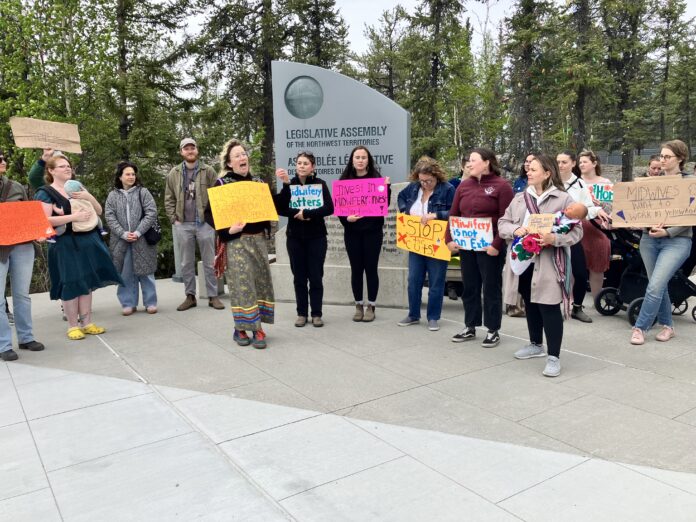The Government of the Northwest Territories is withdrawing funding for the midwifery program in Yellowknife. Kathleen Cranfield from the NWT Midwifery Association states that there should be some engagement with midwives on this topic before such a decision is made. Within the GNWT, where midwives and healthcare professionals work together, one of the mandates is to defund these services. Additionally, there was no engagement with the midwifery programs.
Cranfield says if there’s one recommendation to make, it would be for a consultation process to take place. The problem extends beyond Yellowknife, affecting the entire territory that lacks access to midwifery services.
Midwifery services in Hay River and Fort Smith are excellent, says Cranfield. Yet a community engagement in 2017 highlighted the need for such services in Yellowknife. This would offer women the choice of birthing outside the hospital. David Maguire of the Department of Health and Social Services states, Northwest Territories Health and Social Services Authority is funded for one local resident physician providing obstetrical services. The entire territory has three or four full-time obstetricians.
Studies have shown that employing midwives in the healthcare system leads to significant cost savings, says Cranfield. Not only are there savings from avoiding hospital admissions, but there are also fewer readmissions and shorter hospital stays overall. Additionally, the meticulous attention to individual care by midwives results in a very low rate of preterm deliveries, which further reduces costs. Collectively, these factors contribute to the financial benefits that midwives bring to the healthcare system.
Currently, students from Yellowknife studying elsewhere are awaiting government bursaries and the opportunity to return home for work. The absence of a local program hinders their professional development and the growth of midwifery in the region. Yellowknife’s significant birth rate justifies it as a midwifery hub, facilitating expansion, says Cranfield. Recent years have seen healthcare crises, including service shortages, which need addressing.
A midwife plays a significant role in providing care for individuals during pregnancy, childbirth, and postpartum. Midwives offer comprehensive support, assisting families and parents throughout the process of having a baby, from family planning to delivery and the postpartum period.
Sexual and reproductive healthcare extends to a year postpartum, including contraception prescription, pregnancy testing, early pregnancy detection, and facilitating early access to abortion in communities. Thus, midwives serve as a crucial access point for communities, according to Cranfield.
Ultimately, Cranfield hopes that these students won’t need to be rerouted elsewhere and can contribute to the growth of midwifery here in Yellowknife. Having individuals who are committed to their hometown is exciting, and Cranfield says she truly hopes it can happen for them.





